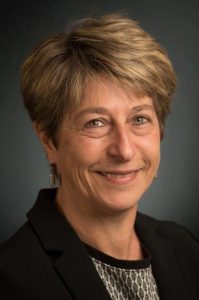Welcome to this issue of the newsletter, which focuses on some of our exciting news from the science areas. We at Gonzaga University are so fortunate to have our top-notch science programs under one roof with the social sciences, the arts, and the humanities. Our liberal arts context provides a distinctive flavor to teaching the sciences and adds important value to a degree in one of the science fields. Students benefit from the context in which their technical know-how and scientific knowledge is embedded, which on a daily basis challenges them to develop a consciousness of how science and technology affect the humanity and the world.
Take for example alumnus Ryan Bart, who is profiled in this newsletter. He is one of our many students admitted to medical school—note that our 55% acceptance rate to medical, dental, and veterinary schools is well above the national average of 25%. As Ryan’s story demonstrates, graduates from the College go on to do great things; they are involved in community activities and display a strong understanding of the importance of social justice.
As this issue of our newsletter shows, our faculty are award-winning teachers and outstanding mentors; they receive grants from prestigious agencies such as the Howard Hughes Medical Institute, which directly benefit students by providing the funding to involve them in undergraduate research and real-world problem-solving. In its Liberal Education & America’s Promise Initiative, the Association of American Colleges and Universities identified undergraduate research as a high-impact educational practice that has proven to be beneficial to students from diverse backgrounds. While science faculty have already reshaped courses “to connect key concepts and questions with students’ early and active involvement in systematic investigation and research,” as the AAC&U advises, our next goal is to engage faculty and students from other areas of the College as well. At the same time, we continue to seek out additional research opportunities through our partnership with the University of Washington medical school.
As we take particular care to develop cutting-edge degrees such as the new Bachelor of Arts in Computer Science and Computational Thinking, we are also concerned about career placement. As of this year, all degree programs provide opportunities for academic internships. We truly want to educate future leaders for a better world. Undergraduate research and other experiential learning experiences are at the forefront of our minds.
 In the spirit of our Jesuit, Catholic, and humanistic mission, the College of Arts & Sciences values creativity, collaboration, engagement, and integration. Faculty, staff, and students work across the disciplines, and with community partners to live that mission and to follow these values. We hope that you follow us on Facebook and Twitter, and that you share your stories with us. As always, we want to hear from you!
In the spirit of our Jesuit, Catholic, and humanistic mission, the College of Arts & Sciences values creativity, collaboration, engagement, and integration. Faculty, staff, and students work across the disciplines, and with community partners to live that mission and to follow these values. We hope that you follow us on Facebook and Twitter, and that you share your stories with us. As always, we want to hear from you!
—Elisabeth Mermann-Jozwiak, Ph.D.
